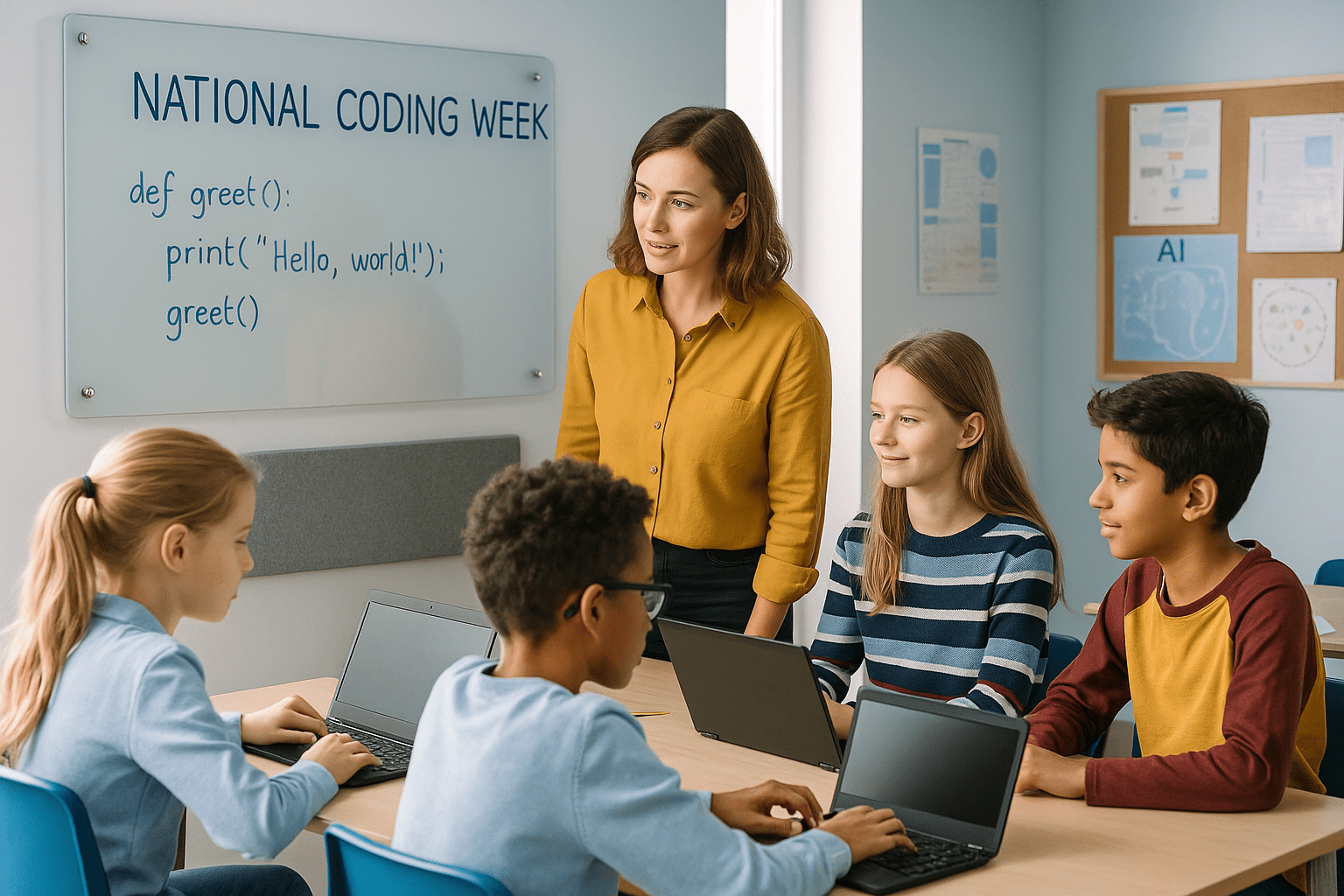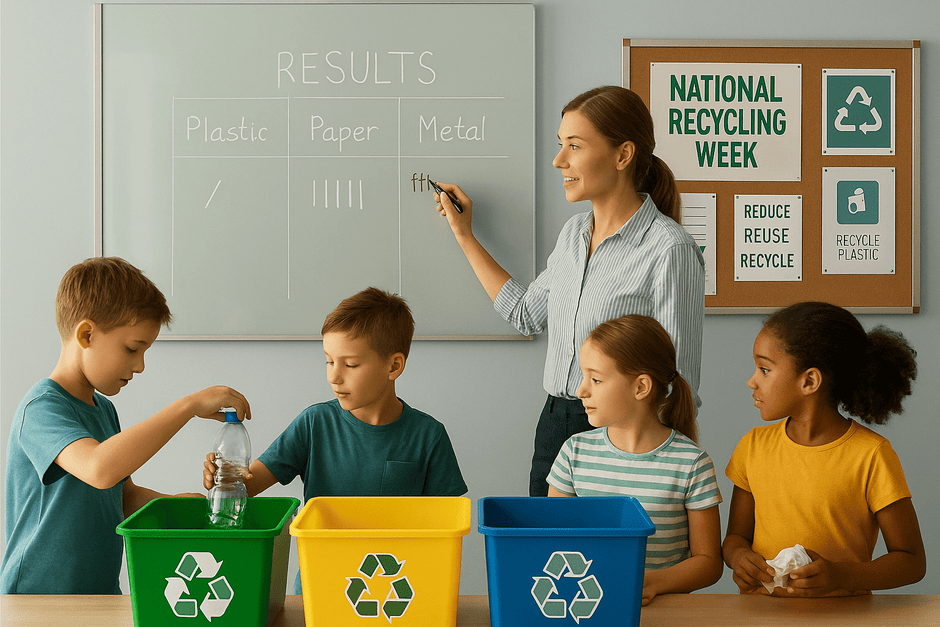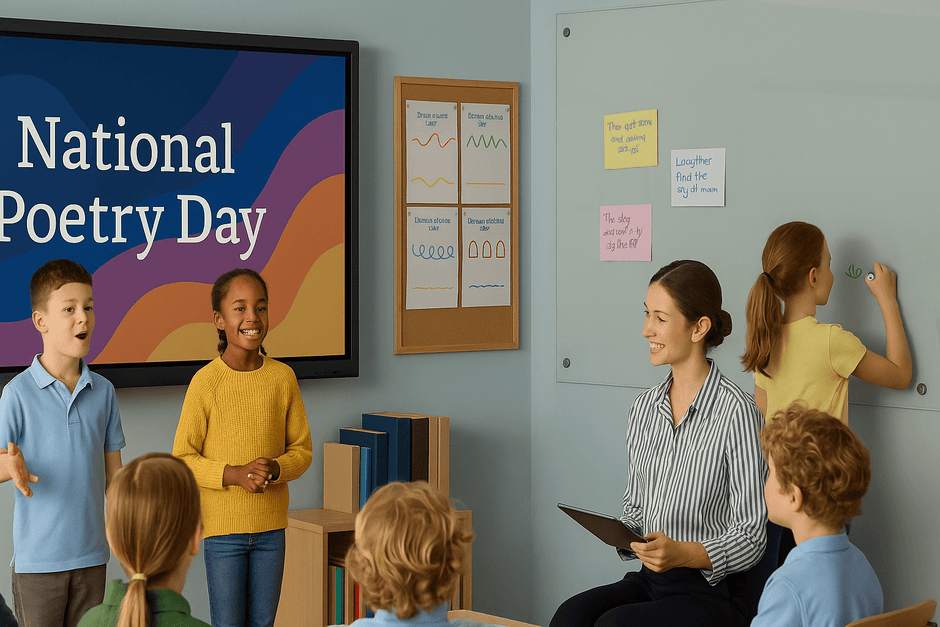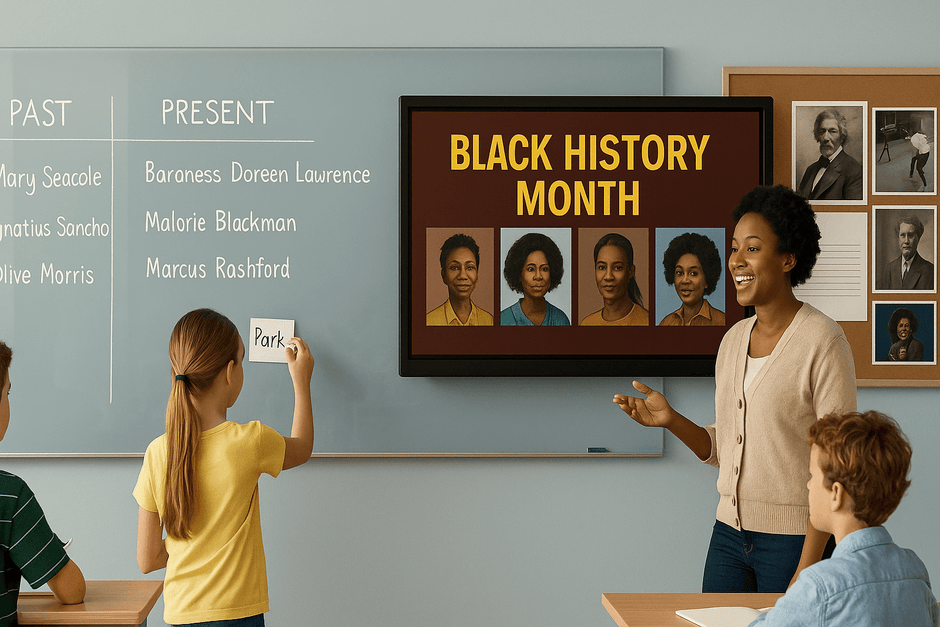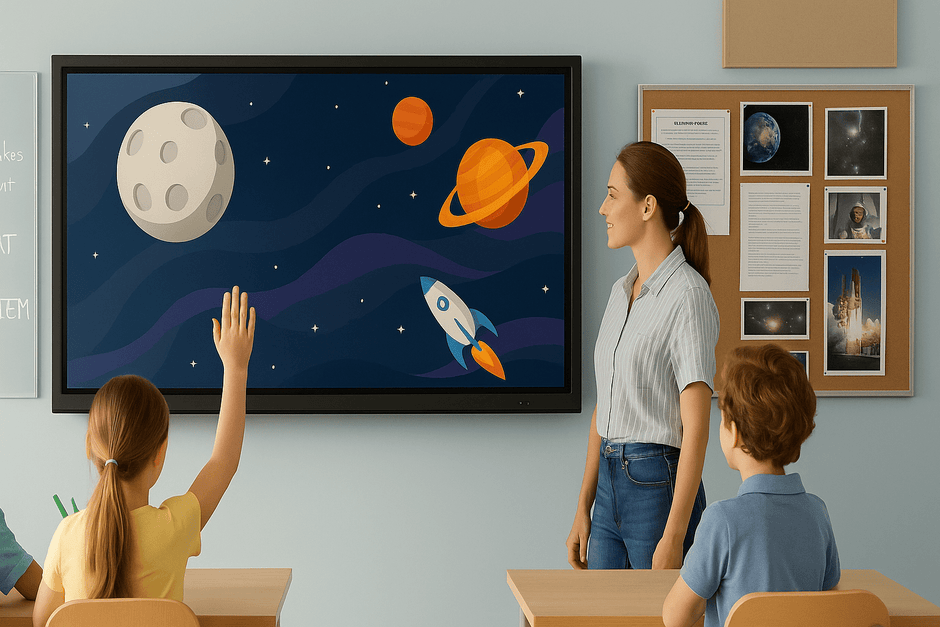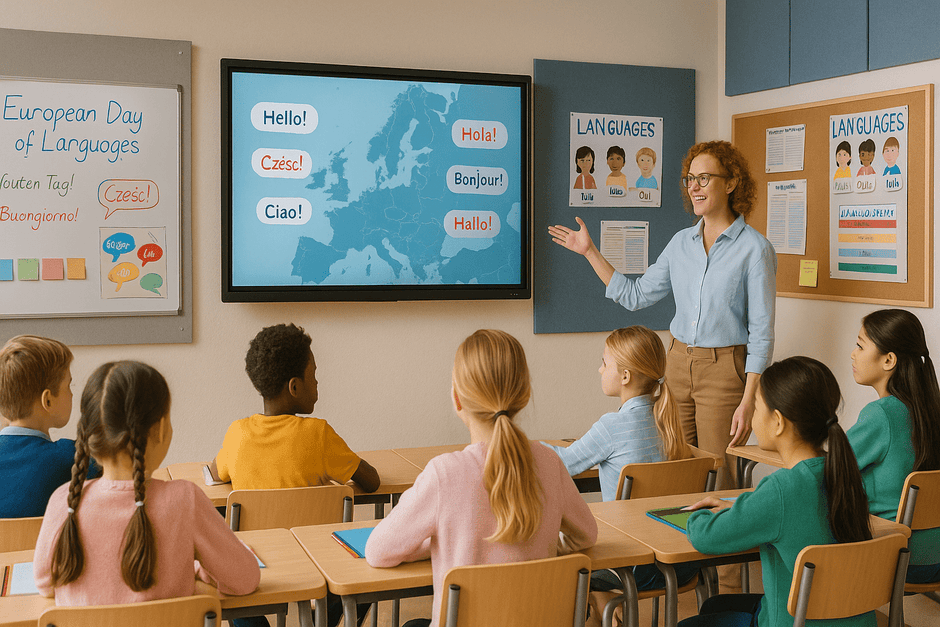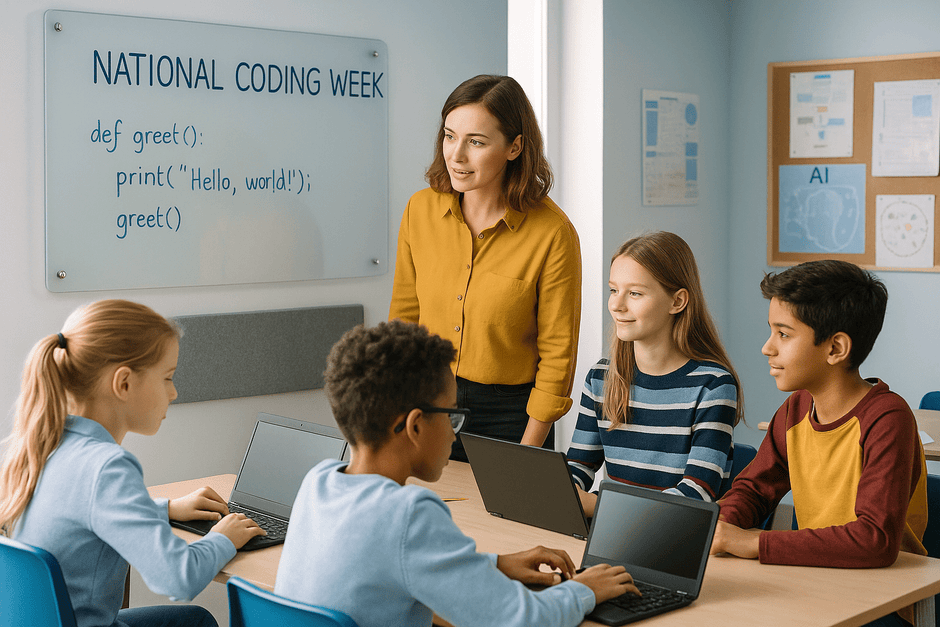Preparing for National Coding Week 2025: How Schools Can Get Ready
Date: 15–21 September 2025 • Read time: ~15 minutes
National Coding Week is the perfect opportunity for schools to spark excitement about coding, digital literacy, and the future of AI. This guide explores best practice, common challenges, and practical steps to help you prepare — with resources and space solutions to make your coding activities visible, inclusive, and impactful.
What is National Coding Week 2025?
National Coding Week runs 15–21 September 2025. It is a UK-wide initiative that promotes digital literacy, builds confidence in coding, and helps schools engage with real-world computing. This year’s theme is Artificial Intelligence (AI) — a timely focus given how AI is now part of the apps, websites, and devices pupils use daily.
Resources and event listings are available from codingweek.org, Twinkl, and STEM.org.uk.
Activities schools can run
- Whole-school launch assembly: introduce the theme, invite a local coder, or run a live virtual Q&A.
- Daily mini-challenges: bug hunts, debug tasks, algorithm puzzles.
- Unplugged coding: “human robot” games, flowcharts on boards, card-based coding challenges.
- Block-based coding: Scratch animations, Code.org activities, designing simple games.
- Text-based coding: Python or JavaScript mini projects, micro:bit programming.
- AI awareness & ethics: what AI is, bias, data use, social impact.
- Cross-curricular links: coding art patterns, science simulations, maths logic puzzles.
- Community involvement: coding evenings with parents, partnerships with local tech firms.
What works best in coding week
- Start simple and build — unplugged first, then block coding, then text.
- Include everyone — scaffold for SEN, EAL and beginners.
- Make it visible — displays, coding walls, celebrate pupil work.
- Use student voice — let pupils shape projects and share outcomes.
- Plan for after the week — clubs, displays, ongoing challenges.
Challenges to anticipate
- Devices: not enough computers? Use unplugged coding and group work.
- Staff confidence: provide CPD or use ready-made packs from Twinkl or STEM.
- Over-planning: focus on a few high-impact activities, not everything.
- Inclusivity: ensure scaffolded tasks and multiple access points.
- Keeping momentum: link to clubs or term-long projects.
Planning timeline
- 4–6 weeks before: pick theme, audit devices, book speakers.
- 2–3 weeks before: pupil teasers, prep displays, warm-up puzzles.
- 1 week before: test logins/software, print unplugged resources, final checks.
- During week: launch assembly, daily challenges, showcase.
- Afterward: celebrate, reflect, embed into clubs or curriculum.
Learning spaces that support coding
Space matters for coding: visible, writable surfaces help planning and debugging, while calm acoustics and flexible boards support collaboration.
- Writable surfaces: Glassboards for flowcharts, pseudocode and group problem-solving.
- Acoustic panels: Reduce noise in shared labs, making group coding calmer.
- Mobile boards: Create pop-up coding zones for clubs or mixed-age projects.
- Display walls: Showcase pupil projects, vocabulary, or AI ethics posters.
Relevant products from Presentation Spaces
To make your coding week visible, digital, and collaborative, here are a few solutions from our store:
- Glassboards — perfect for algorithm sketches, pseudocode, and showcasing pupil work.
- Acoustic Panels — reduce noise in ICT suites and STEM labs, improving concentration and speech clarity.
- Display Boards — ideal for sharing coding challenges, AI ethics posters, and celebrating project outcomes.
- Interactive Screens — bring coding to life with live demonstrations, shared projects, and collaborative problem-solving.
- Projection Screens — perfect for coding assemblies, showcases, and multipurpose ICT spaces.
Sample Coding Week plan
| Day | Morning | Afternoon | Extra |
|---|---|---|---|
| Monday | Launch assembly: “AI & Coding” | Unplugged algorithm games | Set up display boards for coding work |
| Tuesday | Scratch animations (KS1/2) | Python tweak task (KS3/4) | Parent showcase evening |
| Wednesday | AI ethics discussions | Design an AI assistant project | After-school coding club launch |
| Thursday | RSGB Python Pocket Morse challenge | Older pupils mentor younger ones | Newsletter and social posts |
| Friday | Bug-hunt mini challenge | Showcase coding projects, peer voting | Reflection and next steps |
Inclusion, wellbeing and ethics
Good coding weeks make space for all learners. That means:
- Scaffold for SEN/EAL with visuals, sentence stems, peer mentors.
- Celebrate debugging and mistakes as learning opportunities.
- Provide accessibility options: high contrast, audio support, clear displays.
- Discuss the ethics of AI — data use, bias, fairness, impact on society.
Conclusion and next steps
National Coding Week 2025 is a chance to go beyond one-off fun and make coding visible, relevant, and inclusive. With early planning, thoughtful activities, and the right learning spaces, schools can use the week to launch a longer-term culture of digital literacy.



